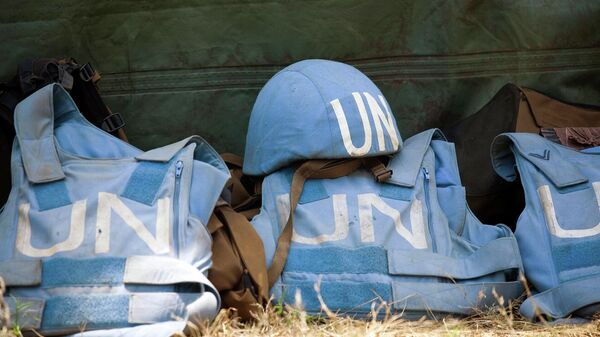In March the Ukrainian parliament approved Petro Poroshenko's proposal to appeal to the UN Security Council and the Council of the European Union for an international operation to maintain peace and security in Ukraine after the ceasefire between Kiev and local militia came into force on February 15.
“Sometimes there are cases during negotiations when one of the sides wants to buy time or win time, and then a new idea is introduced, the one that has never been discussed with anybody, and it starts distracting from the work on what has already been agreed upon,” Lavrov told Rossiya Segodnya news agency's director general, Dmitry Kiselev, in an exclusive interview.
Moscow questioned the need for international peacekeepers in Ukraine since the Organization for Security and Co-operation in Europe (OSCE) has been given the responsibility of monitoring the situation in the country under the February 2015 Minsk deal.
OSCE observers, deployed in Ukraine since March 2014, focus on overseeing the Minsk deal implementation, particularly on the conflicting sides’ adherence to the February 15 ceasefire and the withdrawal of heavy weaponry from the line of contact between Kiev forces and independence fighters.
Last month, OSCE Secretary General Lamberto Zannier told journalists that it was not clear whether a UN peacekeeping operation in Ukraine would be more successful than the present mission of the OSCE.




